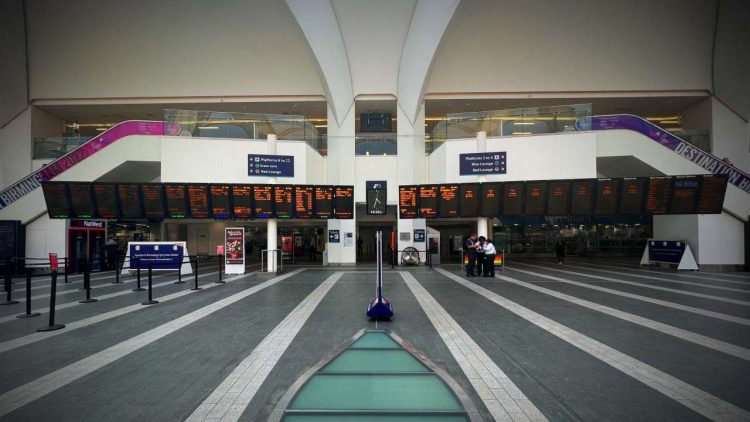Strikes and an overtime ban by members of the ASLEF union will disrupt train services between Monday, 29 January and Tuesday, 6 February.
The disruption may lead to short-notice cancellations and anyone intending to travel should check beforehand.
Revised timetables are now available from National Rail Enquiries and journey planners for 30 and 31 January, and revised timetables for other days will be available by 28 January.

Strikes are planned for 24 hour periods between 30 January and 5 February, 1 and 4 February. An overtime ban will apply to all train companies from 29 January to 6 February.
The strikes will affect services on most of the UK’s train companies who will attempt operate as many trains as possible, but there will be regional variations as strike action will affect different parts of the network on specific days.
In some places there may be no services at all, whilst those that do will start later and finish much earlier than normal, typically not starting before 7.30 am or after 6.30 pm.

Advance, Anytime, or Off-Peak tickets that were purchased before 16 January for travel between 30 January and 5 February will be valid for travel between Monday 29th January and Wednesday 7th February.
If an Advance ticket is for a train on a strike day, and the service is not cancelled, delayed or rescheduled but a customer prefers not to travel, they should contact their ticket retailer.
Anyone with two Advance tickets a return journey comprising separate outbound and return tickets may be able to obtain a fee-free refund or change of journey for any unused tickets, if either of the legs is scheduled for a strike day.
Season tickets holders (flexi, monthly or longer) who do not travel can claim 100% compensation for the strike dates through Delay Repay for the strike dates.

A spokesperson for Rail Delivery Group said: “There are no winners from these strikes that will unfortunately cause disruption for our customers. We believe rail can have a bright future, but right now taxpayers are contributing an extra £54m a week to keep services running post covid.
“ASLEF’s leadership need to recognise the financial challenge facing rail. Drivers have been made an offer which would take base salaries to nearly £65,000 for a four-day week before overtime – that is well above the national average and significantly more than many of our customers that have no option to work from home are paid.
“Instead of staging more damaging industrial action, we call on the ASLEF leadership to work with us to resolve this dispute and deliver a fair deal which both rewards our people, and makes the changes needed to make services more reliable.
“While we are doing all we can to keep trains running, unfortunately there will be reduced services between Monday 29 January to Tuesday 6 February, so our advice is to check before you travel and follow the latest travel information.”
A spokesperson for Rail Delivery Group said: “There are no winners from these strikes that will unfortunately cause disruption for our customers. We believe rail can have a bright future, but right now taxpayers are contributing an extra £54m a week to keep services running post covid.
“ASLEF’s leadership need to recognise the financial challenge facing rail. Drivers have been made an offer which would take base salaries to nearly £65,000 for a four-day week before overtime – that is well above the national average and significantly more than many of our customers that have no option to work from home are paid.
“Instead of staging more damaging industrial action, we call on the ASLEF leadership to work with us to resolve this dispute and deliver a fair deal which both rewards our people, and makes the changes needed to make services more reliable.
“While we are doing all we can to keep trains running, unfortunately there will be reduced services between Monday 29 January to Tuesday 6 February, so our advice is to check before you travel and follow the latest travel information.”






Responses